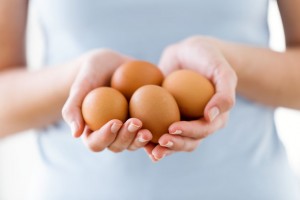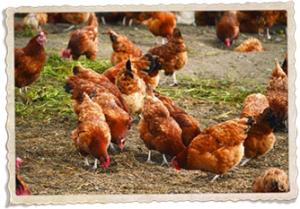You’re in the grocery store and you grab a carton of eggs. You look at the label and see the word “cage-free.” Then you look at another carton of eggs and see “free-range.” Both terms appear to mean the same thing, but in fact they’re quite different. They’re also quite misleading, as these terms create an image of happy, free-roaming chickens when this is hardly ever the case.
Cage-free eggs
When you see the term “cage-free,” you have to take it very literally. “Cage-free” means that the chickens are not kept in cages, but that’s about the extent of it. Chickens that are crammed inside of a building are technically cage-free, so their eggs can be labelled as such. While cage-free chickens are certainly healthier than caged chickens, they are more prone to diseases and often become aggressive towards one another as a result of such close quarters.
Free-range eggs
Cage-free eggs are from chickens that are not raised in cages, but they’re typically confined inside a building. Free-range eggs, on the other hand, are from cage-free chickens that get to go outside. As such, the main difference between cage-free and free-range is that free-range chickens have the ability to go outside, while cage-free chickens don’t. Free-range is obviously more humane, but in many cases, these chickens only have access to the outdoors for a short time and then are brought inside once more.
What should you buy?
Obviously, cage-free and free-range eggs do not support a completely healthy and humane lifestyle for chickens. If you want to support farms that treat their chickens ethically, then you’ll want to look for the “pasture-raised” label. Pasture-raised is similar to free-range, except that the chickens are kept outside for the duration of the day and given at least 108 square feet of roaming space.
However, there’s also a second option—raising your own backyard chickens. This way you can ensure that your chickens are treated fairly, and you’ll get fresh eggs on your table each day. Contact Chickens for Backyard to learn more.

